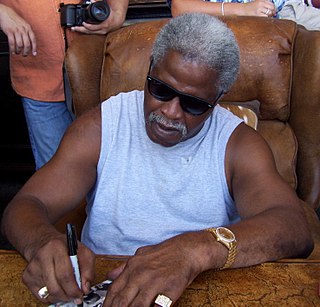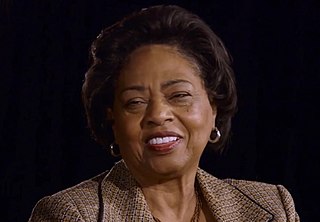A Quote by Nina Turner
Never did I think I would live to see the day Jim Crow was resurrected, making repeat appearances in the South. And he has packed his bags, and he has moved North. Something is wrong.
Related Quotes
My first deepening of spirituality came when I was 6, when I was moved from my grandmother and sent to live with my mother - whom I really did not know - who had moved to Milwaukee. Something inside myself knew that I was never going to see my grandmother again - I would be wasting my time to live in that space of wanting that.
I grew up on a farm and, prior to my father's murder, I wanted to get away from the farm, and away from South Georgia where the Jim Crow laws absolutely controlled anything and everything we did. So, my goal was to leave once I completed high school. But on the night of my father's murder, I made a commitment that I would not leave the South, that I would stay and devote my life to working for change. So, my father's murder has shaped the course of my life even up to this very day.
I used to think the reason I'd like to stop letting fear run my life was that it felt so bad to be afraid, and also that it was pointless - possibly wasted, if the feared thing never did materialize. But now that fear has packed its miserable bags and is running out the door, making slamming noises to call attention to itself, I begin to see how much room fear has occupied. What opportunity opens up!
That's one of the biggest losses, I think, to African American families, is that people, once they left, they turned away from the South. They didn't look back, and they often didn't tell their children about it. They didn't want to talk about it. It was too painful, what they'd gone through and the caste system of the South, which was Jim Crow.
I think the regime in North Korea is more fragile than people think. The country's economic system remains desperate, and one thing that could happen for example would be under a new government in South Korea, to get the South Korean government to live up to its own constitution, which says any Korean who makes it to South Korea, is a Korean citizen. A citizen of the Republic of Korea. And you could imagine the impact that would have inside North Korea if people thought, "If I could get out and make it to South Korea, I could have a different life."
































